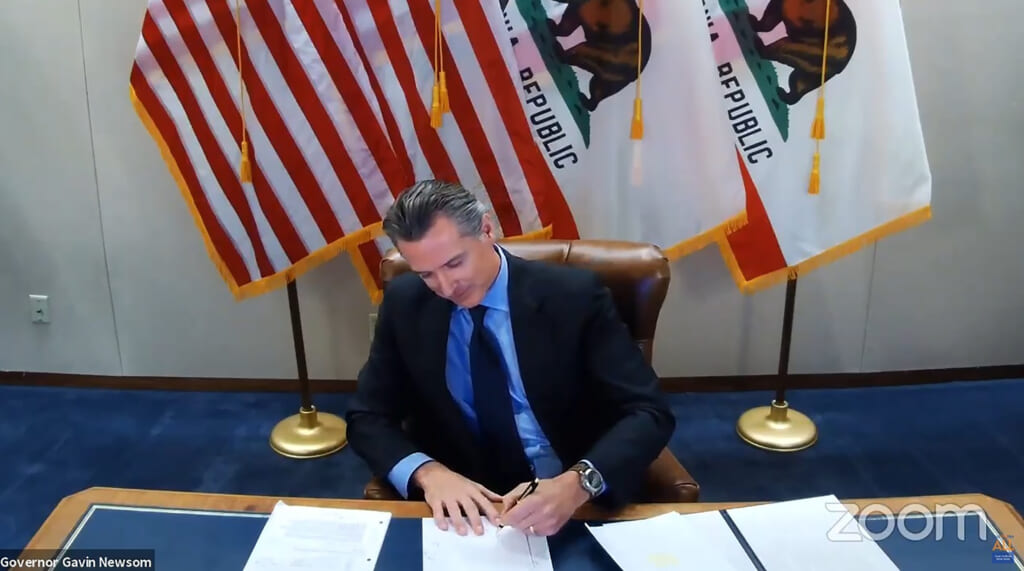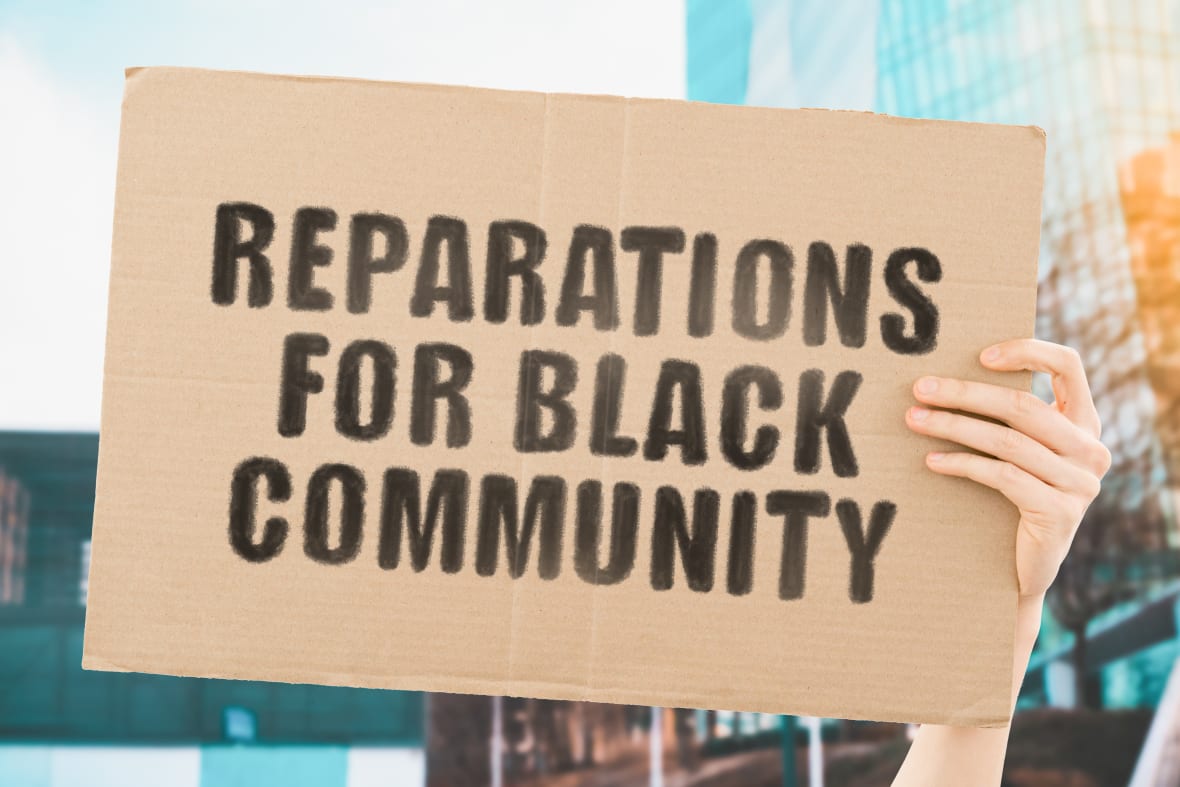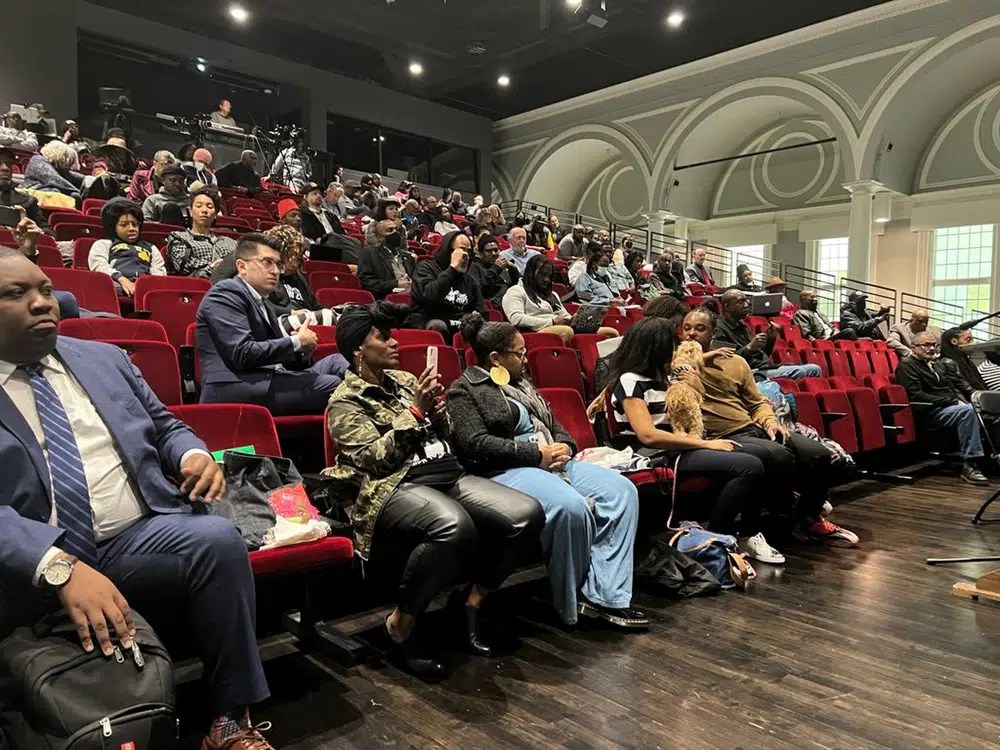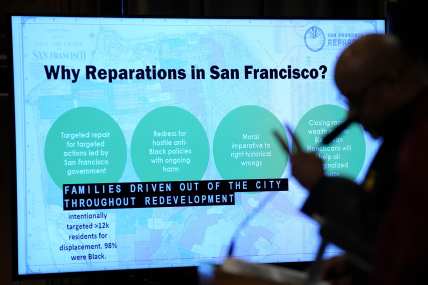Reparations for Black Americans gains support from multiracial organizations
Several state and local governments have attempted to explore ways to financially compensate Black Americans for the injustice of slavery.
Multiracial support for reparations for Black Americans is growing, with many Jewish and Japanese organizations joining in, according to CNN.
As theGrio reported previously, reparations proposals for African Americans date back to 1865, when Union Gen. William Tecumseh Sherman sought to help thousands of newly freed slaves with an order that they be given up to 40 acres of land. That didn’t happen. In the 158 years since Sherman’s proposal, several state and local governments have attempted to explore ways to compensate Black Americans for the injustice of slavery.

Missouri Rep. Cori Bush wants $14 trillion in reparations for Black people impacted by systemic racism as a result of chattel slavery, theGrio reported. New York could create a commission to consider reparations under a recently passed bill.
Officials are following the lead of California, which in 2020 became the first state to form a reparations task force.
California’s reparations task force estimated that eligible individuals could be owed $1.2 million in payouts, theGrio reported.
According to CNN, more than 200 multiracial organizations support California’s reparation plans. Don Tamaki, a member of the California Task Force to Study and Develop Reparation Proposals for African Americans, told the outlet that this includes bar associations, academic organizations and civil rights groups.
In New York, state Assemblywoman Michaelle Solages said, “We want to make sure we are looking at slavery and its legacies.” Speaking before the floor debate this month, she added: “This is about beginning the process of healing our communities. There still is generational trauma that people are experiencing. This is just one step forward.”
After Japan bombed Pearl Harbor in 1941, Tamaki’s parents were sent to internment camps by the federal government. Decades later, his mother received a $20,000 redress check as part of the Civil Liberties Act of 1988. The law granted reparations to Japanese Americans who had been wrongly interned during World War II. They also received a formal letter of apology from President Ronald Reagan, CNN reports.
“There is no equivalence really between four years in a concentration camp and 400 years of systemic exclusion and discrimination,” Tamaki said, CNN reports. “But I do think Japanese Americans as a group do understand what it’s like to be excluded on the basis of race.”

According to Tamaki, a growing realization exists among various demographic groups that while slavery ended in 1865, the bias against Black Americans did not. Instead, it evolved into different forms of discrimination.
In the American Jewish community, some have long supported reparations, CNN reported. Last year, the outlet cited a 2019 resolution the Union for Reform Judaism passed in favor of reparations and urging a federal commission to develop proposals for them.
“It’s really an American issue that until we address this, this country is going to continue to churn and recycle this sort of toxic bias that continues to happen,” Tamaki explained to CNN.
Tamaki also noted how other people of color have benefitted from the Black civil rights movement of the 1960s.
“If it wasn’t for the Black civil rights movement, would I be a lawyer? Probably not. Would my parents still be living in segregated communities and me too? Probably,” Tamaki said.
“I think there’s a sense that African Americans opened the door and everybody else walked through it and there’s a certain truth to that,” he added.
Black Americans have suffered a great deal since slavery, but Tamaki agrees that it is necessary to begin to heal the damage done to them.
TheGrio is FREE on your TV via Apple TV, Amazon Fire, Roku and Android TV. Also, please download theGrio mobile apps today!











